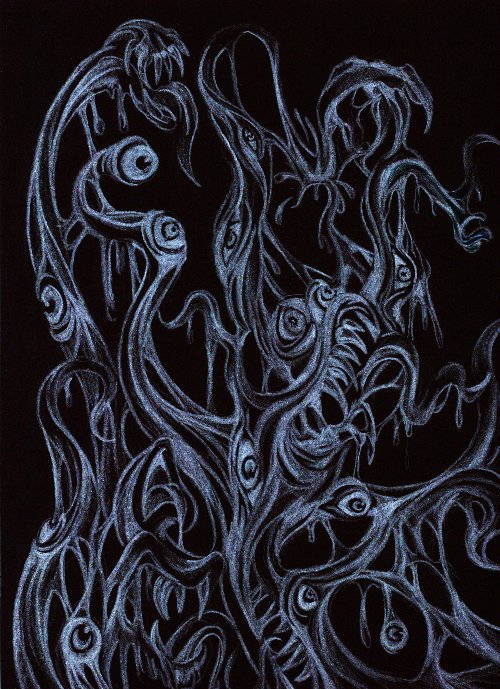Nazi Psychoanalysis: Only Psychoanalysis Won the War
by Laurence A. Rickels
Psychoanalysis was a symptom of everything the Nazis reviled: an intellectual assault on Kultur largely perpetrated by Jews. It was also, as this remarkable revisionary work shows, an inescapable symptom of modernity, practiced, transformed, and perpetuated by and within the Nazi regime. A sweeping, magisterial work by one of the most incisive and interesting scholars of modern philosophy, theory, and culture, Nazi Psychoanalysis studies the breadth of this phenomenon in order to clarify and deepen our understanding not only of psychoanalysis but of the twentieth century itself.
Tracing the intersections of psychoanalysis and Nazism, Laurence A. Rickels discovers startling conjunctions and continuities in writers as diverse as Adler and Adorno, Kafka and Goethe, Lacan, H. Rider Haggard, and Heidegger, and in works as different as Der Golem, Civilization and Its Discontents, Frankenstein, Faust, and Brave New World. In a richly allusive style, he writes of psychoanalysis in multifarious incarnations, of the concept and actual history of "insurance," of propaganda in theory and practice, of psychological warfare, Walt Disney, and the Frankfurt School debates-a dizzying tour of the twentieth century that helps us see how the "corridor wars" that arise in the course of theoretical, clinical, social, political, and cultural attempts to describe the human psyche are related to the world wars of the century in an intimate and infinitely complicated manner.
Though some have used its appropriation by the Nazis to brand psychoanalysis with the political odium of fascism, Rickels instead finds an uncanny convergence-one that suggests far-reaching possibilities for both psychoanalysis and psychoanalytic criticism. His work, with its enormous intellectual and historical span, makes a persuasive argument that no element of modernity-not psychoanalysis any more than Marxism or deconstruction, cultural revolutions or technological advances-can be adequately understood without a thorough consideration of its Nazi component.
Laurence A. Rickels is professor of German and comparative literature at the University of California at Santa Barbara. His books include The Vampire Lectures (1999), The Case of California (2001), and the edited volume Acting Out in Groups (1999), all published by Minnesota.
1
2
3
Showing posts with label psychoanalysis. Show all posts
Showing posts with label psychoanalysis. Show all posts
Monday, December 8, 2008
Sunday, February 24, 2008
The Cambridge Companion to Lacan

The Cambridge Companion to Lacan
(Cambridge Companions to Literature)
by Jean-Michel Rabaté (Editor)
# Paperback: 310 pages
# Publisher: Cambridge University Press (August 18, 2003)
Jacques Lacan is renowned as a theoretician of psychoanalysis whose work is still influential in many countries. He refashioned psychoanalysis in the name of philosophy and linguistics at a time when it faced certain intellectual decline. Focusing on key terms in Lacan's often difficult, idiosyncratic development of psychoanalysis, this volume brings new perspectives to the work of an intimidating influential thinker.
uncanny gaze of Lacan surrounds...zzZZZ
Friday, February 1, 2008
Surplus: From Spinoza to Lacan

Surplus: From Spinoza to Lacan
(S U N Y Series, Insinuations: Philosophy, Psychoanalysis, Literature)
by A. Kiarina Kordela
# Paperback: 240 pages
# Publisher: State University of New York Press (January 2008)
Maintains that Lacanian psychoanalysis is the proper continuation of the line of thought from Spinoza to Marx.
table of contents
go for the book
Friday, November 2, 2007
Jacques Lacan: A Feminist Introduction

Jacques Lacan
A Feminist Introduction
By Elizabeth Grosz
Routledge
Elizabeth Grosz focuses on the controversial texts of French psychoanalyst, Jacques Lacan, analysing and assessing them from a feminist point of view. Designed as an introductory text for students of psychoanalysis and feminism, it places Lacan's work in the context of Freud's writings and contemporary debates generated in French intellectual and political life. In particular the back outlines Lacan's subversive conceptualisation of the human subject as a fundamentally divided being; split bilogically, sexually, linguistically and socially. Lacan's account of the genesis of the ego, his understanding of the sexual drives and his notion of the 'unconscious structured like a language' provide the background needed to conceptualise how he understands relations between the sexes, especially love relations. The book also provides a background for understanding the contributions of the French 'feminists of difference', particularly Julia Kristeva and Luce Irigaray, to contemporary debates within Feminist theory.
yahu bacım otur evinde çocuğuna bak seninki ne kompleksi daha iyi bilirsin
Subscribe to:
Posts (Atom)
